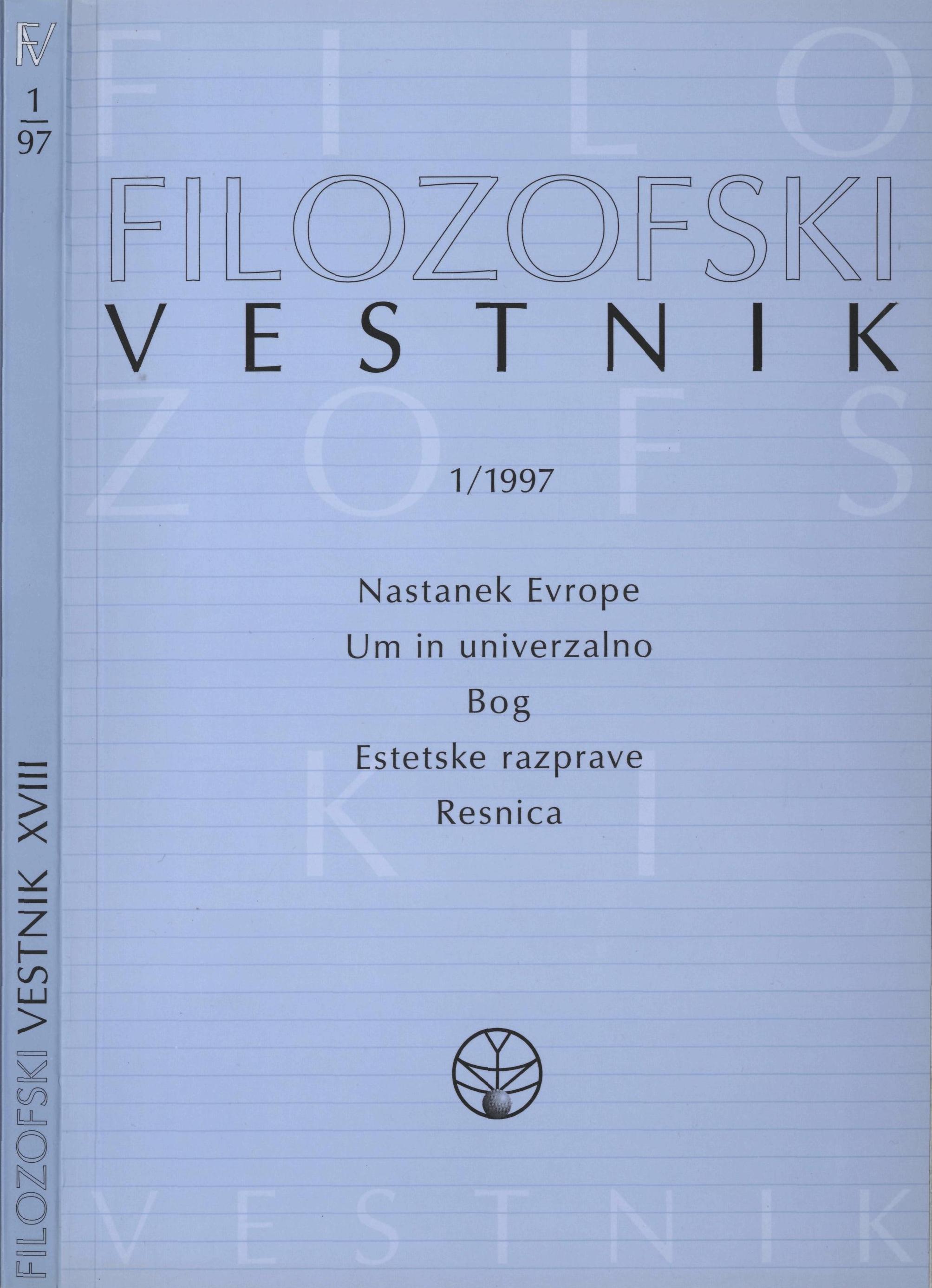Pojmovanje telesa v Merleau-Pontyjeui filozofiji
Povzetek
Filozofija Mauricea Merleau-Pontyja (1908-1961) zaseda posebno mesto v zgodovini evropske filozofije dvajsetega stoletja, tiste, ki se ukvarja s problematiko vidnega in vizualnega ter osrediščenosti kulture, umetnosti in družbenega dogajanja na »oko«, kot poglavitno čutilo zahodne civilizacije. V tako začrtanem kontekstu je filozofija Mauricea Merleau-Pontyja, pa čeprav lahko tudi v njej zasledimo elemente antiokularocentrizma, poskus zastavitve temeljev »alternativnega« režima percepcije, ki se postavlja nasproti kartezijanskemu perspektivičnemu sistemu ter skuša oko in pogled integrirati v drugačen sistem zaznavanja. V pričujočem eseju se avtorica loteva ponovnega branja Merleau-Pontyjeve filozofije in se pri tem osredotoča na sledeča vprašanja: percepcijo, telo in utelešenje percepcije, vidno in nevidno, na odnos med vidnim in taktilnim ter na specifično pojmovanje percepcije v odnosu do kategorij časovnosti in prostorskosti (v primerjavi s podobnimi poskusi, kijih zasledimo v teoretičnem delu Scotta Bukatmana in Slavoja Žižka).Prenosi
Podatki o prenosih še niso na voljo.
Prenosi
Objavljeno
2016-01-24
Kako citirati
Gržinič, M. (2016). Pojmovanje telesa v Merleau-Pontyjeui filozofiji. Filozofski Vestnik, 18(1). Pridobljeno od https://ojs.zrc-sazu.si/filozofski-vestnik/article/view/3985
Številka
Rubrike
Estetske razprave
Licenca
Avtorji jamčijo, da je delo njihova avtorska stvaritev, da v njem niso kršene avtorske pravice tretjih oseb ali kake druge pravice. V primeru zahtevkov tretjih oseb se avtorji zavezujejo, da bodo varovali interese založnika ter da bodo povrnili morebitno škodo.
Podrobneje v rubriki: Prispevki





